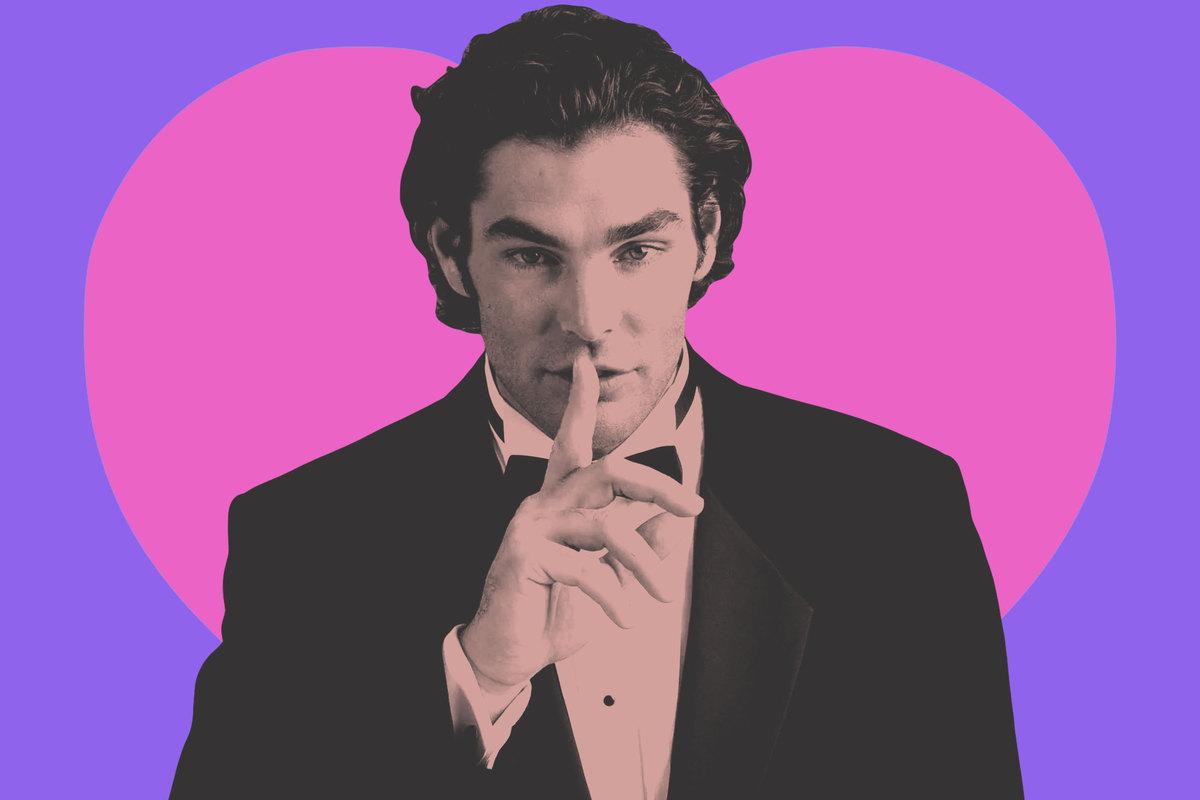
When a casting call went out in the summer of 2002 for contestants for a new reality TV show, the description was purposefully vague: “WANTED: SINGLE WOMEN WHO ARE READY TO GET MARRIED,” it said. “If you’re a single woman age 24-32 and are open to the idea of finding love in a romantic foreign location, they want to hear from you! They have found [a] great guy who is searching for the love of his life. He’s very, very rich, handsome, and ready to settle down. You must be available to travel internationally in October 2002.”
The project was helmed by Fox and Rocket Science Laboratories, known at the time for the semi-risqué dating show Temptation Island. It also included a nearly-identical call for single men looking to snag a “very successful, happy, and drop-dead gorgeous” woman. The name of this new reality series was listed as The Big Choice, but in reality that title, and the men’s listing, was all part of a big deception. The show that was actually in the works was called Joe Millionaire.
The concept behind Joe Millionaire was as shameless as it was intriguing: What if The Bachelor, except built on a foundation of waaaaay more lies? The setup of the new Fox program mimicked that of the ABC program that had first debuted in March 2002, featuring a group of women vying for the hand of an extremely eligible nice young man—in this case, a dreamy big fella with the eyebrows and jawline of a Disney prince and a stated inheritance of $50 million for great measure.
Except that Evan Marriott, the fella in question, was actually just a regular dude with a heavy mid-Atlantic accent, a sub-$20,000-a-year job in construction, and a crash course in pretending to understand wine. (His scion-sounding last name was a happy coincidence.) The show promised to answer a two-part question: Which woman would win his heart? And how would she react to being totally misled in front of a national TV audience that was let in on the knife-twist right from the beginning?
Make that a record-breaking national TV audience. Fox put the full might of its unapologetic and brash promotional muscle behind Joe Millionaire, first teasing it during a Thanksgiving NFL broadcast, and the effort, combined with the sadistic appeal of the plot, paid off. Nearly 23 million people, on average, watched the series each week during January and February of 2003, and its finale alone drew viewership of 40 million, eclipsing even that year’s Oscars broadcast, which reached 33 million. Despite such widespread interest, however, or perhaps because of it, Joe Millionaire essentially wound up as a one-hit wonder, its shtick unable to make up for the inauthentic chemistry of its characters and the conspicuous bait-and-switch tricks employed by the production. (The Bachelor, meanwhile, is still going strong.)
Joe Millionaire was a cultural touchstone, a thrilling journey, an ethical morass, and a memorable letdown all in one. Its premise was astonishing but its execution was often dull as hell. It wasn’t so much a flash in the pan as it was a firework blowing your hand off. It was the TV equivalent of getting caught with a cigarette and having to smoke the whole pack as a punishment. Like many reality TV programs before and since, Joe Millionaire was a house of cards, with nothing except its own contrived tension to hold it together. That could have worked out just fine, if that tension had turned out to be the entertaining kind. But ultimately, Joe Millionaire mostly just felt like an entertainment Ponzi scheme, an operation whose very existence relied upon layers of deception and a killer sales pitch, but who never did provide that big payoff.
More than 40 million people tuned in to watch the Joe Millionaire finale in February 2003, a mind-boggling total. A whole lot of these viewers, though, were annoyed before the two-hour special even began. The previous week had ended on a rude cliff-hanger following an interminable series of flashbacks and commercials, and as the finale began, the general mood was summed up well by the beloved website Television Without Pity. “Oh, God,” the site’s minute-by-minute recap of the finale began. “The editors have the fucking audacity to include a ‘Last Week On …’ segment. Let’s see. Last week on Joe Millionaire: absolutely nothing happened, and viewers everywhere were seriously pissed.”
I was one of them, having enthusiastically watched the show week after week during its run, gasping and leering along with everyone else at the over-the-top setting (a chateau in France), the amusing characters (a butler credited as “The Butler” whom Fox found through an actual butler agency; like the contestants, he was kept in the dark), and the humiliation inflicted upon the contestants, both in terms of the overarching premise and the smaller ways in which they riled up and showcased the women.
In one classic Joe Millionaire scene, the women were all led into a room with ball gowns of various shapes and sizes and told to don one for an important evening. There weren’t enough gowns for everyone, and the resulting blend of seething envy and struggles with zippers was like a game of musical chairs crossed with the most savage middle school sleepover you can imagine. In another memorable occasion, a contestant who went by the name “Mojo” described her giving nature: “If I had the money, and the time,” she said, “I’d wanna go to Africa, to bathe the children. And give them shots. I can’t help it, I’m a mercenary person.”
While contestants in The Bachelor were given a rose when they moved on to another week, the women on Joe Millionaire received an escalating series of precious necklaces, from pearl to ruby to sapphire to emerald, as they advanced. It was stupid, and riveting. Eventually, two women earned diamond pendants. Which one would Evan pick?
Would it be kind, gentle Zora, who so resembled Snow White in looks and disposition that the cheeky Joe Millionaire editors overlaid animated woodland creatures on her shoulder? Zora did yoga, liked to visit senior citizens, and, unlike most reality TV contestants out there, needed a whole lot of coaxing to appear on camera in a bikini.
Or would it be confident, smirking Sarah, whose undisclosed-to-producers gigs as a fetish model for bondage enthusiasts surfaced a few weeks before the finale on the gotcha website The Smoking Gun? (This gave her something in common with Evan, kind of; when the series first premiered, his old stints modeling banana hammocks were similarly brought to light.) Sarah’s defense of her past was quite cool and righteous; she had law school bills to pay, felt this was a legitimate modeling job, and passed no judgment on people into bondage or feet, she explained midseason on Access Hollywood. But her onscreen persona had already been drawn, in an ultimately dubious manner. Sarah had, in the series’ most infamous moment, attempted to sneak away from the cameras with Evan, but had forgotten to disable their mics; the result, aired in Episode 4, was a lot of garbled noise, some porny backing music, and the iconic, romantic captions: “Uhm / (smack) / Uhm / (slurp) / Huh Huh Ha He.” But as she would later insist, the audio was cobbled together for effect, a practice sometimes referred to as frankenbiting. (One line where she suggested “Think it’s better if we’re lying down?” was actually something she’d said to a fellow contestant who was giving her a massage, she maintained.)
The dichotomy between these two finalists was compelling, but it was starting to feel cartoonish, as well. The more the series relied on rehashing tired old footage, the more it seemed that maybe there was no there there, no compelling plot or character advancement in store, just a hall of tune-in-next-week-for-the-REAL-twist mirrors.
“So ...” read a taunting email from one local Fox affiliate’s rep the next morning, according to The Washington Post, “you thought he was gonna make his choice last night. ... Sorrrry!!! It’s called teasing, folks.” Still, I and 40 million of my closest friends watched every second of the finale, in which Evan finally chose Zora over Sarah, Zora forgave him for the whole lying thing, the pair displayed a real vacuum of chemistry, and they both split a million bucks for the effort. “An overproduced, undersurprising end,” wrote the Chicago Tribune. Soon after the series concluded, Zora appeared on Live With Regis and Kelly, and Regis noticed right off the bat that she wasn’t wearing her ring. The relationship had ended before it began, she acknowledged. Considering this glum photo was the official promotional image shared by the network after the finale—the best they could do!—this wasn’t entirely a surprise.
Like the couple itself, I too came away mostly unfulfilled, except without the whole compensatory half-million prize. In hindsight, perhaps viewers should not have put much faith in a program for which the deception was always the point.
Joe Millionaire was an exercise in asking not for permission but for forgiveness—only no one involved with the show seemed particularly interested in the forgiveness part, either. “I pretty quickly decided that the best way to keep this gigantic secret,” explained producer Liz Bronstein on the Reality Life With Kate Casey podcast about the casting process, “was to make it sound really boring. So I named the show The Big Choice, which sounds really boring. And I lied to my agent. I lied to my family, all my friends.”
Reality TV was still a new enough genre that Marriott himself later said that when he signed up for Joe Millionaire, he didn’t quite grasp what he was getting himself into. (“Deer in the headlights,” is how Bronstein described him on the podcast.) “I thought I was doing something like Blind Date,” Marriott told New York in 2015, referring to the more conventional two-people-sitting-at-a-cafe shows that were popular at the time. When he learned more, he told New York, he informed producers he didn’t think the show was for him. “That was when they said, ‘We’ll give you 50 grand if you just go with the flow here and do what we say,’” Marriott recalled. (He didn’t yet know about the half-million he’d go home with, nor did he know that if Zora had rejected him after learning his truth, he would have gotten the entire million to himself.)
The women on the show didn’t even get that tiny dignity. Fox executive Mike Darnell, whose other credits included When Good Pets Go Bad, Alien Autopsy, and Who Wants to Marry a Multi-Millionaire (a 2000 show whose titular multimillionaire was found to have a restraining order against him, causing the network to put an end to the concept) said that one of his goals was to show the true colors of reality TV contestants. “In a way, we’re ripping the mask off the people” who sign up for shows like The Bachelor, he explained to Variety. “We find out whether they’re really doing this for love.” To him, the most interesting tension in the series wasn’t necessarily who won, but whether the deceived winner would tell the construction worker to go pound sand.
Zora, interviewed by People in 2014 about a newer, weirder program called I Wanna Marry “Harry,” recalled not finding out about the show’s name actually being Joe Millionaire until she saw the first promo air on TV. Another contestant had a similar story on her personal blog, and went on to describe an emotionally scarring experience that began with her serendipitously waitressing for a table of casting agents but ended with her being eliminated from the show and sequestered at a French Best Western for the next few weeks of filming and policed by Fox-hired bodyguards who mostly only allowed her to eat McDonald’s.
Unsurprisingly, none of these conditions helped nurture a long-lasting relationship. (It didn’t have to be this way: Another show that aired at the same time, the first installment of The Bachelorette, wound up with Trista and Ryan together so-far-forever.) Evan and Zora went their separate ways before the show even aired, although she told The Trentonian that they remained in loose touch in a sort of no-one-else-understands-what-we-went-through kind of way. Marriott tried to parlay his celebrity into just about anything over the years, hosting a show called Fake-A-Date on the Game Show Network in 2004 and, extremely supposedly, being “in the running to star in” Superman before being coldly ghosted by Fox. Not long after the finale, he told Vulture, his pass to the Fox lots was revoked. “I was out in front of the Fox studios with the door slammed in my face,” he said. In 2015, he made a rare public appearance for a panel called “The Evolution of Relationship Reality Shows” in New York and told reporters that when he finally went back to his roots after his Joe Millionaire stint, starting his own heavy equipment rental company and booking his first job, he “literally almost was in tears. I called my dad and said, ‘I feel like I’ve just been paroled. This is where I should have been.’”
There have been other programs that revolve around a hoax, like The Joe Schmo Show, or around seeing how a bunch of beautiful women might react to men who aren’t their types, like Beauty and the Geek. Rocket Science Laboratories, the production company behind Joe Millionaire, went on to develop short-lived programs like My Big Fat Obnoxious Fiance and Secret Millionaire. But for the most part, there hasn’t really been another Joe Millionaire.
And that’s despite attempting to actually make another Joe Millionaire. A sequel to the program later in 2003, The Next Joe Millionaire, featured European women who hadn’t followed the first season; it was comparatively an enormous bust, averaging about a quarter of the viewership. Between its kinda-cruel framework and its aggressively slow pacing, the series had an extremely short shelf life, particularly as the reality TV lineup got ever more crowded. “I think we got greedy,” said Fox entertainment chair Sandy Grushow at the time. “We tried to sneak it by the American public a second time and we got called on it.”
For such a big-time mega-hit program, Joe Millionaire sure is hard to revisit; the bulk of its extant online existence is in the form of grainy YouTube footage of an early episode from an Israeli broadcast and some blog posts. But maybe it’s better this way. Maybe Joe Millionaire was never a television show, but rather a piece of performance art. If you weren’t there in the moment—and probably even if you were—you’ll never really understand.

